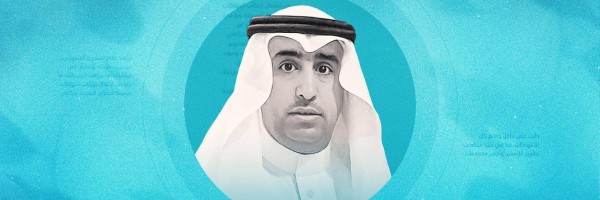Four years since the Saudi authorities’ crackdown on dissent in September 2017, the majority of those arrested remain in prison, either held in detention without charge, still on trial, or serving prison sentences on charges relating to free speech.
From 9 September 2017, the Saudi authorities carried out a wave of arrests targeting dozens of clerics, academics, activists, writers, and journalists. They included the popular cleric Salman al-Odah, after he posted on Twitter a prayer for the “softening of hearts” of Qatar and Saudi Arabia’s rulers during a political standoff. In a trial before the Specialised Criminal Court (SCC) that has been repeatedly postponed, and in which the Public Prosecutor is calling for the death penalty, al-Odah faces 37 spurious charges, including “turning society against the country’s rulers”. Meanwhile his health has significantly deteriorated in detention, including the loss of almost half his sight and hearing. Salman’s brother Khaled al-Odah, arrested after tweeting about his brother’s arrest, was sentenced on 17 November 2020 to five years in prison followed by a five-year travel ban, on charges that included “sympathising with his brother Salman al-Odah” and “mixing private and public business”.
Trial proceedings are also still going on in the cases of cleric and journalist Ali al-Amri and Islamic scholar Hassan Farhan al-Maliki, in which the Public Prosecutor is again seeking death sentences. Al-Amri faces over 30 trumped-up charges including “forming a youth organisation to carry out terrorist acts in Saudi Arabia”; the charges against al-Maliki, which are vague and contravene his right of free expression, include “lack of commitment to good citizenship”. Al-Maliki’s son, Al-Abbas Hassan al-Maliki, who was arrested in October 2017 on account of a tweet about his father’s arrest, was also brought before the SCC, and was sentenced on 6 September 2020 to a four-year prison term, charged with “posting tweets sympathising with his father” and “destroying electronic evidence”.
Several human rights defenders were arrested in the crackdown, including members of the Saudi Association for Political and Civil Rights (ACPRA) Issa al-Hamid and Abdulaziz al-Shubaily. They are currently serving prison sentences of 11 and eight years respectively, on charges including “participating in the establishment of an unlicensed organisation” (ACPRA) and “insulting the judiciary”. On 4 March 2020, the UN Working Group on Arbitrary Detention called on the Saudi authorities to immediately release al-Hamid, al-Shubaily and fellow human rights defender Essa al-Nukheifi.
Many of those arrested in September 2017 faced months of detention without charge before some of them were eventually brought to trial. Dozens have since been handed prison sentences in a series of judicial proceedings that took place after the courts resumed work in August 2020, having been closed for four months due to the COVID-19 lockdown. On 3 September 2020, the SCC issued prison sentences against several detainees held arbitrarily since September 2017. Writer Abdullah al-Maliki was sentenced to seven years in prison on charges related to his cultural activities, such as “possession of banned books”, and other charges that included defending members of ACPRA. On the same day, the court sentenced cleric Ibrahim al-Harthi to five years, writer Ahmad al-Sawian to three years, academic Yousef al-Qassim to five years, academic Khaled al-Ojaimi to three years and eight months, and journalist Fahad al-Sunaidi to three and a half years, all on charges relating to free speech.
On 3 October 2020, prison sentences were issued against three more detainees held arbitrarily since September 2017, with preacher Nayef al-Sahafi sentenced to 10 years, journalist Musa’id al-Kathiri to three and a half years, and university professor Ali Badahdah to six years. On 6 October, businessman and economist Essam al-Zamel was sentenced to 15 years in prison. Al-Zamel was arrested in September 2017 after expressing support for human rights and criticising Crown Prince Mohammed bin Salman’s plan to sell off the state oil company, Saudi Aramco.
Those arrested during the September 2017 crackdown were targeted for exercising their fundamental right to freedom of expression. ALQST therefore calls on the Saudi authorities to release these individuals immediately, as well as all others detained for the peaceful expression of their opinions, and drop all charges against them.




